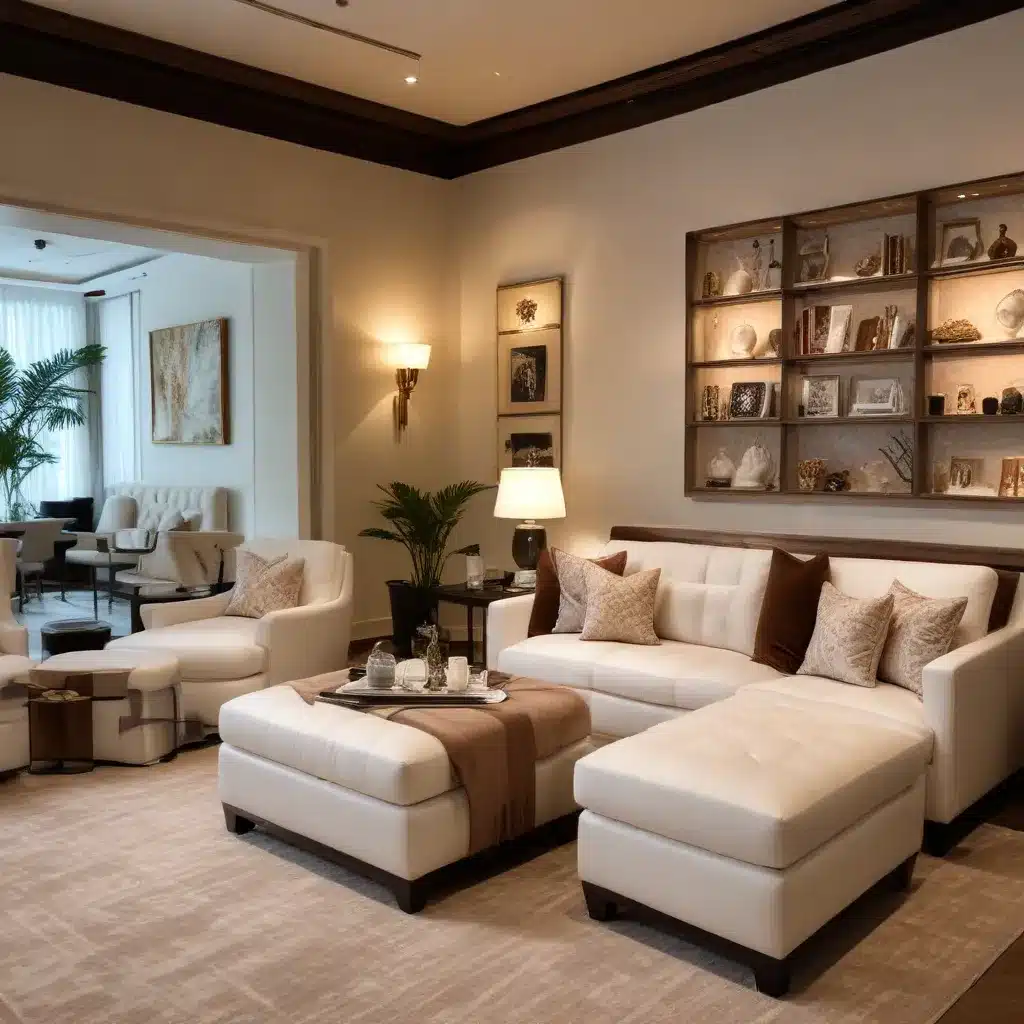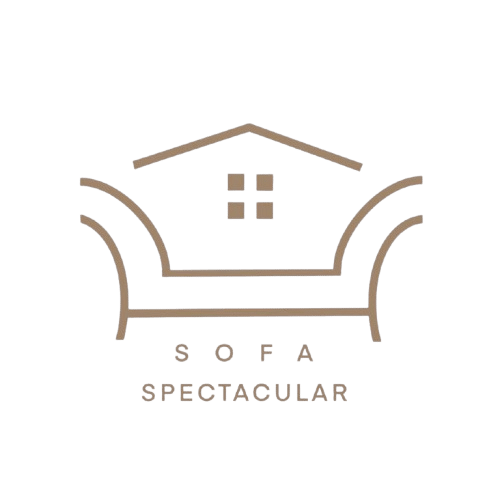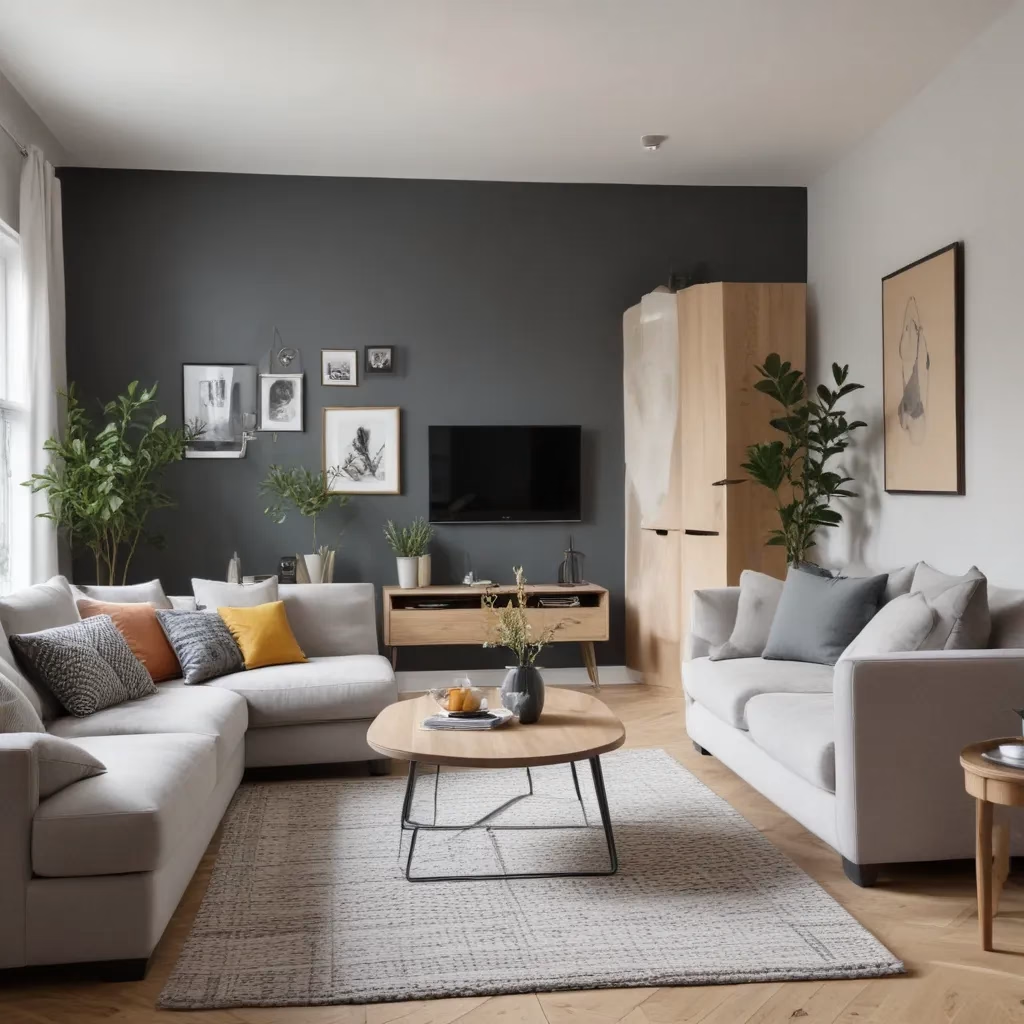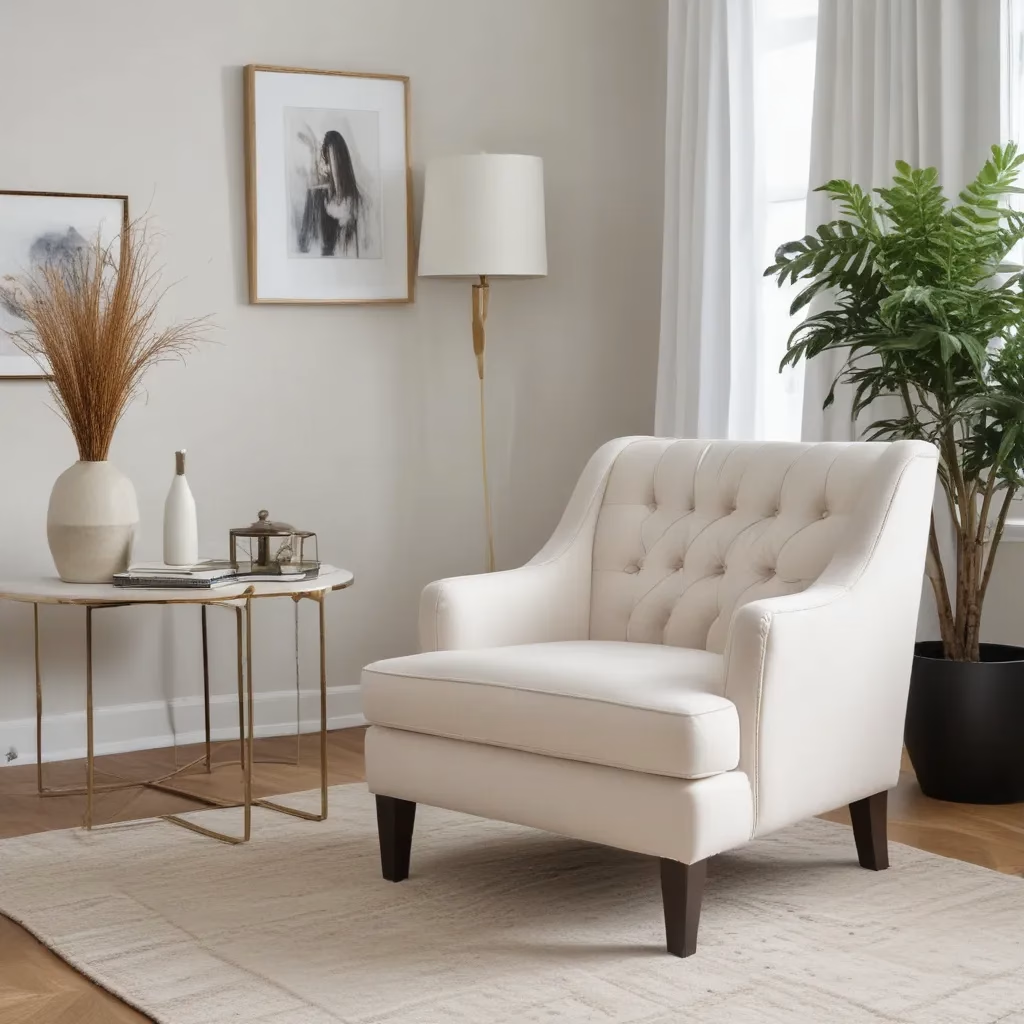
The Rise of Personalized Furniture in the UK
In recent years, the UK furniture market has seen a significant shift towards personalized and bespoke pieces, particularly in the realm of sofas and seating options. This trend reflects a growing desire among British consumers for furniture that not only fits their space perfectly but also aligns with their individual style and comfort preferences.
The concept of customized comfort has gained traction as homeowners seek to create living spaces that are uniquely tailored to their needs. This movement goes beyond mere aesthetics, encompassing factors such as ergonomics, sustainability, and functionality. As a result, furniture retailers and manufacturers across the UK have adapted their offerings to meet this demand for personalization.
The appeal of bespoke sofas lies in their ability to provide a perfect fit for any living space. Whether it’s a snug corner in a cozy cottage or a sprawling open-plan city apartment, custom-made seating ensures that every inch of space is utilized effectively. Moreover, the option to choose specific materials, colours, and designs allows homeowners to express their personality through their furniture choices.
Understanding the Bespoke Sofa Process
Initial Consultation and Design
The journey to owning a bespoke sofa typically begins with a consultation. During this phase, customers work closely with furniture experts to discuss their vision, requirements, and preferences. This step is crucial in ensuring that the final product meets all expectations.
Designers use advanced software to create 3D renderings of the proposed sofa, allowing customers to visualize the piece in their space. This technology has revolutionized the custom furniture industry, providing a clear picture of the end result before production begins.
The design process also involves selecting the perfect dimensions. Unlike off-the-shelf options, bespoke sofas can be crafted to fit unusual spaces or to accommodate specific needs, such as extra depth for taller individuals or specialized support for those with back issues.
Material Selection
One of the most exciting aspects of creating a bespoke sofa is choosing the materials. UK consumers have shown an increasing interest in high-quality, sustainable fabrics and leathers. Some popular options include:
| Material | Characteristics | Sustainability Rating |
|---|---|---|
| Wool | Durable, natural insulator | High |
| Linen | Breathable, eco-friendly | High |
| Leather | Long-lasting, develops patina | Medium |
| Velvet | Luxurious, wide colour range | Low to Medium |
The selection of materials goes beyond aesthetics. Factors such as durability, ease of cleaning, and environmental impact play significant roles in the decision-making process. Many UK furniture makers now offer eco-friendly options, including recycled fabrics and sustainably sourced wood for frames.
Craftsmanship and Production
The production of bespoke sofas in the UK often involves a blend of traditional craftsmanship and modern manufacturing techniques. Skilled artisans work on each piece, ensuring attention to detail and quality that mass-produced furniture often lacks.
The frame construction is a critical component of a well-made sofa. Hardwood frames, often made from beech or oak, provide sturdy foundations that can last for decades. The joining techniques used, such as mortise and tenon joints, contribute to the longevity of the piece.
Upholstery is another area where bespoke sofas shine. Expert upholsterers carefully apply the chosen fabric or leather, paying special attention to pattern matching and seam placement. This level of detail results in a polished, professional finish that elevates the overall appearance of the sofa.
Customizing Comfort: Beyond Aesthetics
Ergonomic Considerations
When it comes to bespoke sofas, comfort is paramount. UK consumers are increasingly aware of the importance of ergonomics in furniture design, particularly as more people spend time working or relaxing at home.
Custom sofas can be tailored to provide optimal support for different body types and postures. This might include adjustable lumbar support, varying seat depths, or specific cushion densities. Some manufacturers even offer options for built-in reclining mechanisms or adjustable headrests.
Filling Options
The choice of filling materials significantly impacts the comfort and longevity of a sofa. Here’s a comparison of popular filling options:
| Filling Type | Comfort Level | Maintenance | Longevity |
|---|---|---|---|
| Foam | Firm | Low | Medium |
| Feather | Soft | High | Medium |
| Fibre | Medium | Medium | Low |
| Combination | Customizable | Medium | High |
Many UK sofa makers now offer combination fillings that blend the best qualities of different materials. For example, a foam core wrapped in feathers can provide both support and softness.
Temperature Regulation
In the variable UK climate, temperature regulation is an important consideration for sofa comfort. Some bespoke options now include innovative features such as breathable fabrics or temperature-regulating foam to ensure year-round comfort.
Styling Your Bespoke Sofa
Current UK Interior Design Trends
As of September 2024, UK interior design trends lean towards a blend of comfort and sustainability. Earthy tones and natural materials are popular choices, reflecting a desire to bring elements of nature into the home.
Multifunctional furniture is also on the rise, with many homeowners opting for sofas that incorporate storage solutions or can be easily reconfigured for different uses. This trend aligns well with the bespoke furniture movement, as custom pieces can be designed to serve multiple purposes.
Colour Choices and Fabric Patterns
While neutral tones remain a safe choice for longevity, there’s a growing boldness in colour selection for bespoke sofas. Deep jewel tones like emerald green and sapphire blue are gaining popularity, adding a touch of luxury to living spaces.
Pattern-wise, there’s a resurgence of interest in traditional British textile designs, reimagined for contemporary interiors. Plaids, herringbone, and subtle florals are being incorporated into sofa designs, often as accent pillows or on specific panels of the furniture.
Accessorizing Your Bespoke Sofa
The beauty of a custom sofa lies in its ability to serve as a canvas for personal expression. Accessorizing can further enhance the bespoke nature of the piece. Consider the following tips:
- Choose throw pillows in complementary or contrasting fabrics to add texture and interest.
- Drape a carefully selected throw blanket for added comfort and style.
- Place a side table or ottoman nearby to create a functional seating arrangement.
- Consider the lighting around your sofa to create the desired ambiance.
The Investment Value of Bespoke Sofas
Long-term Cost Benefits
While bespoke sofas often come with a higher initial price tag compared to mass-produced options, they can offer significant long-term value. The durability and quality of custom-made pieces mean they often outlast their cheaper counterparts, reducing the need for frequent replacements.
Additionally, the ability to repair or reupholster bespoke sofas extends their lifespan even further. Many UK furniture makers offer maintenance services for their custom pieces, ensuring that the investment retains its value over time.
Environmental Considerations
The environmental impact of furniture production and disposal is a growing concern for UK consumers. Bespoke sofas address this issue in several ways:
- Reduced waste: Custom-made furniture eliminates overproduction and unsold stock.
- Quality materials: Higher-grade materials used in bespoke pieces are often more durable and sustainable.
- Local production: Many custom sofas are made locally, reducing transportation emissions.
- Repairability: Well-made custom furniture is easier to repair, keeping it out of landfills.
Adapting to Changing Needs
One often overlooked benefit of bespoke sofas is their adaptability. As lifestyle needs change, a custom piece can often be modified rather than replaced. For example, a sofa might be reupholstered in a different fabric to suit a new colour scheme, or the filling might be adjusted to provide more support as the owner’s needs change.
Navigating the Bespoke Sofa Market
Finding the Right Manufacturer
Choosing the right manufacturer is crucial when investing in a bespoke sofa. UK consumers have a wealth of options, from small local workshops to larger national brands. When selecting a manufacturer, consider the following:
- Reputation: Look for reviews and testimonials from previous customers.
- Experience: How long has the company been making custom furniture?
- Portfolio: Ask to see examples of their work, particularly pieces similar to what you’re envisioning.
- Manufacturing process: Inquire about their sourcing and production methods to ensure they align with your values.
- After-sales service: What kind of warranty or maintenance support do they offer?
Budget Considerations
Bespoke sofas represent a significant investment, and it’s important to have a clear understanding of costs involved. Prices can vary widely depending on size, materials, and complexity of design. Some factors that influence the cost include:
- Frame quality: Solid hardwood frames are more expensive but offer superior durability.
- Fabric choice: High-end or rare fabrics will increase the overall cost.
- Size and complexity: Larger sofas or those with intricate designs will be more expensive to produce.
- Additional features: Built-in recliners, adjustable headrests, or smart technology integration will add to the price.
When budgeting for a bespoke sofa, it’s wise to consider the long-term value rather than focusing solely on the initial cost. A well-made custom piece can be a worthwhile investment that provides comfort and style for many years.
Timeline Expectations
Custom furniture production takes time, and it’s important to have realistic expectations about the timeline. On average, the process from initial consultation to delivery can take anywhere from 8 to 12 weeks. This timeline might be extended for particularly complex designs or during peak seasons.
A typical timeline might look like this:
- Initial consultation and design: 1-2 weeks
- Material selection and final design approval: 1-2 weeks
- Production: 4-6 weeks
- Quality control and finishing: 1 week
- Delivery and installation: 1-2 weeks
Caring for Your Bespoke Sofa
Maintenance Tips
Proper care and maintenance are essential to preserve the beauty and longevity of a bespoke sofa. Here are some general tips:
- Regular cleaning: Vacuum upholstery weekly to remove dust and debris.
- Spot cleaning: Address spills immediately using appropriate cleaning methods for the specific fabric.
- Rotation: Rotate cushions regularly to ensure even wear.
- Sunlight protection: Position the sofa away from direct sunlight to prevent fading.
- Professional cleaning: Schedule professional cleaning annually or as recommended by the manufacturer.
Fabric-Specific Care
Different materials require different care approaches. Here’s a brief guide:
| Fabric Type | Cleaning Method | Special Considerations |
|---|---|---|
| Leather | Wipe with a damp cloth, use leather conditioner | Avoid water-based cleaners |
| Wool | Vacuum regularly, use wool-safe detergent for spots | Avoid excessive heat when drying |
| Linen | Blot spills, professional cleaning recommended | May wrinkle easily, consider professional pressing |
| Velvet | Use a soft brush, avoid water-based cleaners | May require professional cleaning for stubborn stains |
When to Consider Reupholstering
Even the most well-maintained bespoke sofa may eventually need reupholstering. Signs that it might be time to consider this option include:
- Visible wear and tear on the fabric
- Outdated style that no longer fits your decor
- Changes in comfort due to worn padding
- Desire for a significant colour or texture change
Reupholstering can breathe new life into a beloved piece of furniture, often at a lower cost than purchasing a new bespoke sofa. Many UK furniture makers offer reupholstering services for their custom pieces, ensuring that the quality of the original craftsmanship is maintained.
The Future of Bespoke Sofas in the UK
Technological Advancements
The bespoke furniture industry in the UK is embracing technological advancements to enhance both the design process and the final product. Some exciting developments include:
- Virtual reality showrooms: Allowing customers to visualize custom designs in their own homes.
- 3D printing: Enabling the creation of unique decorative elements or even entire frame components.
- Smart fabric integration: Incorporating technology for temperature regulation or even wireless charging capabilities.
- AI-assisted design: Using artificial intelligence to suggest optimal designs based on customer preferences and space constraints.
These technological innovations are making the process of creating bespoke sofas more accessible and efficient, while also opening up new possibilities for customization.
Sustainability Focus
As environmental concerns continue to shape consumer choices, the bespoke sofa industry in the UK is placing an increasing emphasis on sustainability. This focus is manifesting in several ways:
- Eco-friendly materials: Greater use of recycled fabrics, sustainable wood sources, and natural fibres.
- Circular economy principles: Designing sofas with eventual disassembly and recycling in mind.
- Local sourcing: Prioritizing UK-based suppliers to reduce transportation emissions.
- Energy-efficient production: Investing in more sustainable manufacturing processes.
These efforts not only appeal to environmentally conscious consumers but also contribute to the overall sustainability of the furniture industry.
Changing Consumer Preferences
The UK market for bespoke sofas is likely to continue evolving in response to changing consumer preferences. Some trends to watch include:
- Increased demand for multifunctional pieces: As living spaces become more flexible, sofas that can adapt to different uses will be in high demand.
- Health-focused designs: Growing awareness of the impact of furniture on physical well-being may lead to more ergonomic and health-conscious sofa designs.
- Personalization beyond aesthetics: Consumers may seek even greater levels of customization, including personalized comfort settings or integrated technology.
- Rental and subscription models: Some companies may explore offering bespoke sofas on a rental or subscription basis, catering to a more mobile and flexible lifestyle.
Conclusion: The Enduring Appeal of Bespoke Sofas
The trend towards bespoke sofas in the UK is more than just a passing fad. It represents a shift in how consumers view furniture – not as disposable items, but as long-term investments in comfort, style, and personal expression.
The ability to create a piece of furniture that perfectly fits one’s space, style, and comfort needs is incredibly appealing. As we’ve explored, bespoke sofas offer numerous advantages, from superior quality and fit to the ability to express individual style and values through furniture choices.
While the initial investment may be higher, the long-term benefits of a bespoke sofa – including durability, repairability, and the potential for updating – make it a wise choice for many UK homeowners. As the industry continues to innovate, incorporating new technologies and sustainable practices, the appeal of custom-made sofas is likely to grow even further.
For those considering a new sofa, exploring the bespoke option is well worth the time and effort. With careful consideration of design, materials, and craftsmanship, a bespoke sofa can become not just a piece of furniture, but a cherished part of your home for years to come.
For more information on sofa options and to explore a range of styles, visit Sofa Spectacular. Their collection showcases the diversity and quality available in today’s furniture market, providing inspiration for your next sofa purchase, whether bespoke or ready-made.



